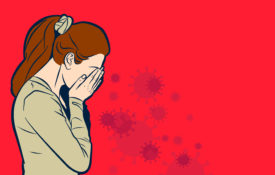
Podcast: In this episode, Under the Cortex hosts three researchers to discuss paranoia, proposed improvements for clinically testing the social impacts of paranoia, and much more.

Loneliness in adulthood follows a U-shaped pattern: It’s higher in younger and older adulthood, and lowest during middle adulthood, according to new research that examined nine longitudinal studies from around the world.

Podcast: Under the Cortex hosts Samia Akther Khan, King’s College London, whose research examines the feeling of loneliness across lifespan.

An associate professor at the University of Georgia, Katie Ehrlich researches how social experiences as a child can shape mental and physical health across the lifespan.

Lonely individuals’ neural responses differ from those of other people, suggesting that seeing the world differently may be a risk factor for loneliness regardless of friendships.

The most impactful psychological science research published in 2022 reveals that new understandings of human behavior continue to resonate with wide audiences.

More often than not, recipients of support perceive offers of help far more positively than we might expect them to.

Research points to three broad reasons why people need social contact with strangers, or“Vitamin S.”

Depression may be more closely related to how we perceive our relationships and position within a community than to whether or not we are socializing with others.

Mars missions are likely to last 30+ months. The Translational Research Institute for Space Health wants to find and fund disruptive, breakthrough approaches that reduce risks to astronauts’ psychological and behavioral health and performance.

Expert commentary from Chris Segrin, whose research focuses on social skills, relationship development and satisfaction. [April 2, 2020]
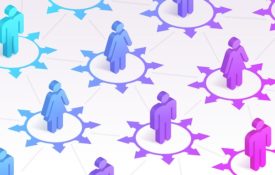
Precision medicine, informed by predictive modeling, offers a promising avenue for helping patients and practitioners decide on the right combination of medication and therapy.

Expert commentary from Vanessa LoBue on emotional development and the effect of emotion and experience on perception and learning. [April 1, 2020]
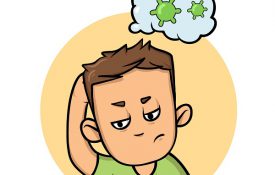
Scientists from around the world, including APS Board Member Stacey Sinclair, discuss their research on the origins, varieties, and consequences of loneliness.

A new funding opportunity seeks to advance scientific understanding of social isolation and loneliness.
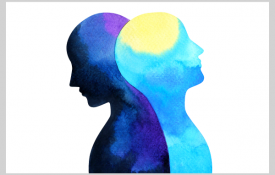
Pedro Marques Quinteiro studies how teams work in space-analogue situations to predict and improve future work in space stations.

Advice on how to shift gears and stay productive during graduate training.

Attempting to conceal anxiety may hinder individuals nonverbal communication, increasing instances of social rejection.

Feeling lonely and being alone are different, often unrelated, states — some may find themselves feeling lonely in the midst of a gathering full of friends and some people experience few moments of loneliness despite

Reminding people of their close relationships can reduce their tendency to anthropomorphize objects as a way of feeling socially connected.

People who were generally secure in their relationships were able to mitigate feelings of loneliness by writing about a comfort food.

In her final column as APS President, Lisa Feldman Barrett points to a key area of scientific research that could benefit physicians, epidemiologists, and virologists on the front lines of the COVID-19 pandemic.
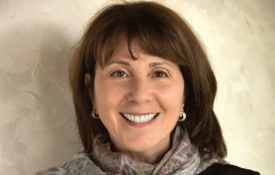
Teenagers and young adults who intentionally hurt themselves engage in such behavior based, in part, on how they experience pain and their emotional distress.
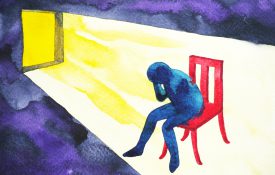
A new article probes the complicated relationship between loneliness and social internet use.

People who respond to stress with negative emotions that carry over from one day to the next report more health problems 10 years later compared with peers who are able to “let it go.”
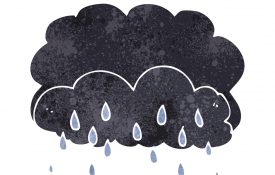
Research shows that feeling lonely can affect both physical and mental health and it also reveals some strategies for combating these negative effects.
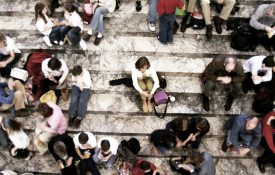
Psychology researchers have long been interested in close relationships, but have only more recently begun investigating social exclusion.
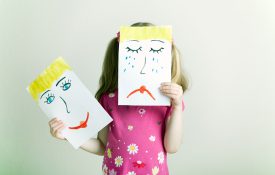
Nostalgia amplifies perceptions of social support and may be helpful in overcoming feelings of loneliness, researchers find.

Psychologica scientists are disentangling social isolation, loneliness, and the physical deterioration and diseases of aging, right down to the cellular level.

When we hear somebody described as “frosty” or “cold”, we automatically picture a person who is unfriendly and antisocial. There are numerous examples in our daily language of metaphors which make a connection between cold
Folks feeling lonely as the holidays approach have a lot of company, a new study suggests. Loneliness appears to be widespread among Americans, affecting three out of every four people, researchers have found. Further, loneliness
From our homes and neighborhoods to the world beyond, the environment and human behavior are mutually and inextricably dependent on each other. These five articles investigate.

New research proposes lifestyle, social, and psychological factors may increase the risk of contracting COVID-19. [July 9, 2020]
